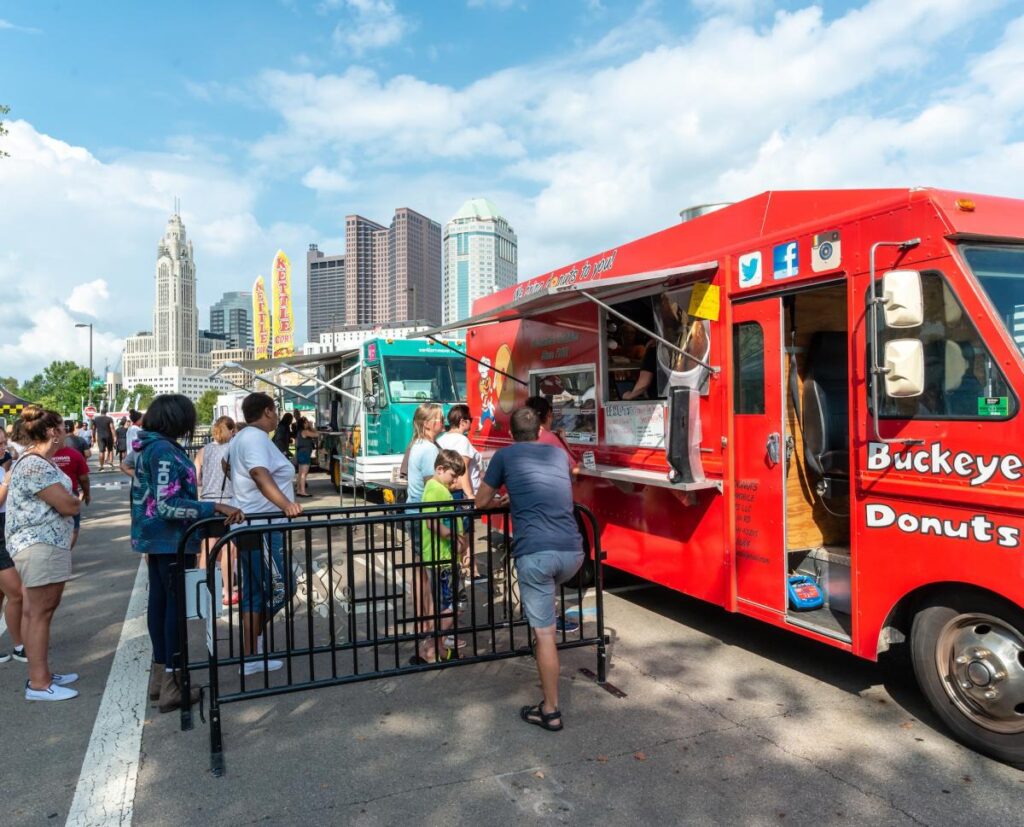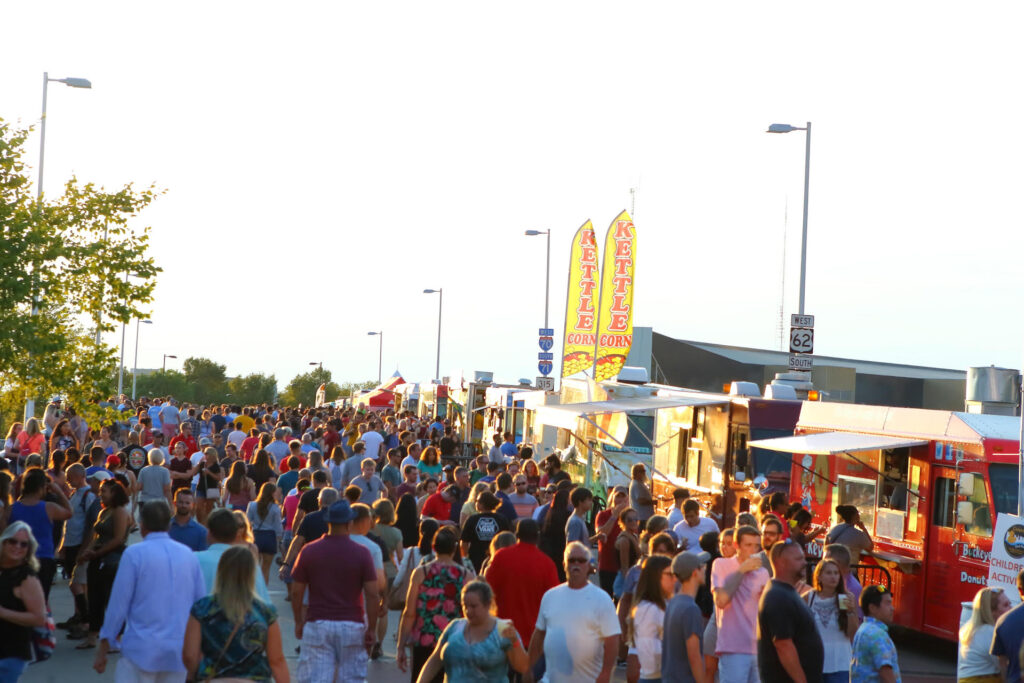To say street food has attained celebrity status would be putting it lightly, favored by diners and credited for the success of many chefs, Street food is steadily growing in cultural significance .
Every August, “street food loyalists” would gather for some body wiggling fun, finger licking food and all round merriment at the Columbus food truck festival. Featuring close to 50 food truck vendors, the Columbus food truck festival is the biggest food truck festival in the state of Ohio. Showcasing delicious recipes from various chefs and food truck vendors, the festival is highly anticipated and is always met with warm reception by the street food community who are always on site to enjoy everything the event has to offer..

Just like The Columbus Food Truck Festival, street food has spawned similar festivals across various states in America and beyond. Festivals like the Abbot Kinney Festival, Sea Isle Food Truck Fest, Reno Food Truck Fridays, Taco ‘N Taps and Chicago Food Truck Festival to mention a few are all inspired by street food.
The increased popularity of these kinds of festivals demonstrates the importance of food trucking and “street food” to modern day diners. Street food has gone beyond just a quick meal, It’s a medium for diners and lovers of inventive cuisines to come together and celebrate their love for their favorite street dishes.
Street food has not only afforded diners affinity to their favorite meals and food truck vendors, it has also given them a sense of belonging. To these diners, street food is not just food, it is a part of their lives. Reality TV shows like “ the Great Food Truck Race” and “ Food Truck Nation” goes to show that street food and food trucking are more than just a means to an end for starving bellies.
If specially made gourmet dishes failed to bring people together then I’m not sure if any other thing could foster a strong community. Apart from the sense of community between diners. The food truckers embrace healthy competition and see one another as part of a community. This is evident in food trucking parks where multiple vendors coexist peacefully.
The concept of community building was first explored by Roy Choi, Founder of Kogi BBQ and one of the very first pioneers of the food truck business in America. Choi employed social media back when it was still relatively untested and untapped, updating his customers with the ever changing location of his food trucks and keeping them abreast of where his trucks were going to be every single day.
Nowadays, Food vendors use social media to network and form relationships with other vendors and potential customers . To paraphrase Christina Brunet-Sabastia co – owner of Mimi’s Bistro on the Go “ Food Truck owners would probably be glad if someone reached out about their business. We are Friendly people!”

Another vendor described her relationship with her clients as personal and even went further by saying “We laugh, we talk and sometimes we even become friends”.
Many food trucking businesses has been the launching pad for several brick and mortar businesses as many food truck vendors have built successful restaurant franchises off the back of their successful food trucking business. Businesses like Luke’s Lobster, Fukuburger Truck and Komo Pizza all built their restaurant businesses by starting off as food trucks.
Additionally, growing interest in street food and its innovative cuisines has made it a strong alternative to traditional restaurants. The presence of fusion meals is a very strong driving force behind this preference. Street food aims to bring something new to the taste buds of diners and it has been doing it successfully for years. According to a poll conducted by Harris Interactive, many diners described street food as authentic, high quality and exciting.
The influence of street food has been so immense that even supermarkets and restaurants are now trying to capitalize on its growth.
Other factors like ease of accessibility and diners experiencing their meals being cooked in real time have also given street food an added advantage.
In conclusion, Street food is more than just food to diners. It is a medium for diners to express themselves and bond with others with similar tastes while enjoying the dishes they love and adore. Street food is a form of identity, a fellowship of sorts and a congregation of people inclined towards great dishes.


